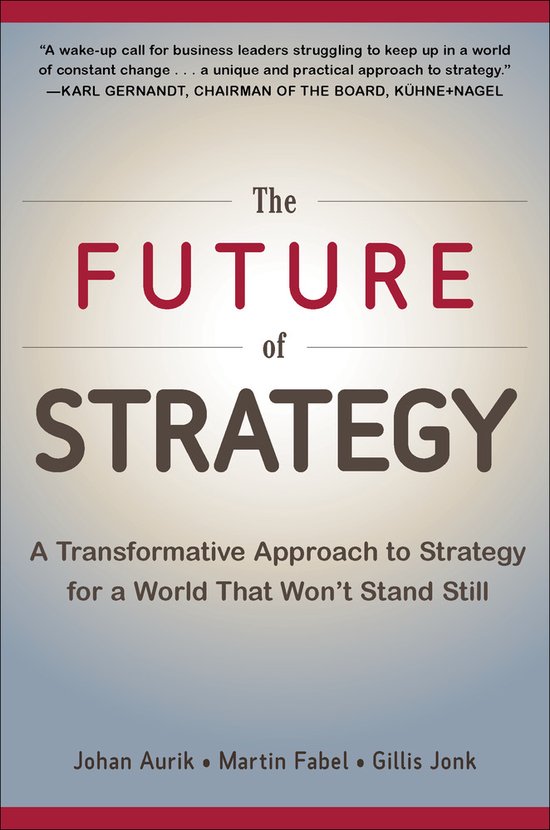
Future Of Strategy
Creating and executing a business strategy was once similar to playing chess. The board, the players, and the moves were all fairly well defined.
Not anymore. The playing field is more complex than ever, and the competition comes at you from all angles. Business leaders are obsessed with "keeping up" and being "agile." Thus, the age-old activity of strategy development is being replaced by busy thinking, frenetic activity, and bureaucratic planning.
The authors of The Future of Strategy argue that strategy is more important today than ever, and that disciplined, clear-thinking, strategically focused companies will end up owning the future. This book provides the roadmap you need to develop a strategy tailored specifically for today's business world.
"The Future of Strategy is a wake-up call for business leaders struggling to keep up in a world of constant change. The authors offer a unique and practical approach to strategy--one that future proofs companies from today’s fast-moving markets and disruptive trends." -- KARL GERNANDT, Chairman of the Board, Kühne+Nagel
"Best practices organizations need to learn strategy-making in today's instantly connected, hyper-competitive markets. The Future of Strategy provides a masters' class in how to conduct an inclusive, astute conversation about the 'why' and 'how' of strategy-making in an era of widespread discontinuity. The authors prepare leaders at all levels to productively engage in this conversation." -- ROBERT M. RANDALL , Editor of Strategy & Leadership and coauthor of The Portable MBA in Strategy and Learning from the Future
Own the Future of Your Industry with a Transformational Strategy Designed for Today's Business World
Leaders today are inundated with strategic opportunities, besieged by business disruptions, andpressured to innovate--to do things better, faster, or differently. The CEO of a Fortune 500 firm explains it best: "I am looking at 23 different strategic initiatives. Trying to develop and implement so many strategies is like trying to change the driver, tires, the oil, and the bumpers; paint the body; and tune the engine. And doing all of this on a car that's running at full speed."
The answer used to be found in strategy. But in thepast decade, the commonly deployed large-scale strategic exercises were largely discredited. They were slow and elaborate and did not deliver the expected returns, let alone help make sense of a glut of initiatives or cope with an increasingly unpredictable future.
The Future of Strategy brings strategy back fromthose big top-down plans. It answers the questions of executives facing tumultuous business conditions and rapidly shifting markets: Is strategy still possible? Yes. Aren't strategies outdated before they can be implemented? Not if they are done right. Rather than developing strategy, aren't we better off being agile and able to capitalize on emerging trends faster than our peers? Agility complements strategy; it cannot replace it.
This book is about reversing course and repositioningstrategy in its rightful place as the overarchingmanagement system. The authors introduce their core methodology, designed to future proof companies against the friction and "fog of war" that inexorably accompany changing times. They synthesize three fundamental principles that, when combined, provide the means to reclaim strategy:
- Take direct cues from fundamental trends affecting the company going forward
- Engage people across the company to translate these cues into strategy and effectively eliminate the handover hurdle between formulation and execution, a major reason for strategy failure
- Capture the output as competitive opportunities and manage their life cycles--when some have run their course, others are ready to take over
Strategy today requires stepping over the shadows of one's own ingrained beliefs to capture new opportunities.This book reveals the inner workings of transformational strategies developed by leaders who gradually become more successful by advancing winning combinations of attitudes, values, habits, and practices.
| Auteur | | Johan Aurik |
| Taal | | Engels |
| Type | | Hardcover |
| Categorie | | Managementboeken |